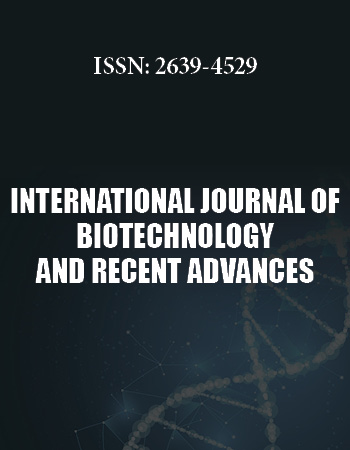International Biotechnology and Research Conference
April 25-27, 2018 Rome, Italy
Genomic Modification by Ocimum canum against Lead-Induced Chromosome Aberration and itʼs Effect on Antioxidant Enzymes
1Department of Science Technology, Federal Polytechnic, Nigeria
2Department of Biochemistry, Ekiti State University, Nigeria
Anticlastogenic potential of Ocimum canum (Black leaf) extract was studied in bone marrow cells of mice using micronucleus assay. 200mg/kg of Ocimum canum aqueous extract was administered as dietary supplement for 30-days. The mice were divided into three groups A, B and C. Animals in group A were fed with distilled water, B were treated with 2.5mg/kg lead acetate while group C were fed with 200mg/kg Ocimum canum aqueous extract and 2.5mg/kg lead acetate simultaneously. After 30-days, mice were sacrificed and chromosome preparations were made from bone marrow according to colchicines hypotonic-fixation air drying Giemsa schedule. The cytogenic end-point observed was chromosomal aberration which increased significantly (P<0.05) in group B animals treated with lead acetate only. However, the chromosomal aberration was significantly (P<0.05) reduced by the extract fed to animals in group C. In addition, the effect of the extract on the defensive antioxidant enzymes of the test animals was also assessed. The results indicate synergistic effect of the extract on the antioxidant enzymes in the liver tissues. Hence, the results of this study suggest viable anticlastogenic and antioxidant potentials of Ocimum canum extract which could protect against lead-induced chromosomal aberration and as well enhance activities of antioxidant enzymes.


